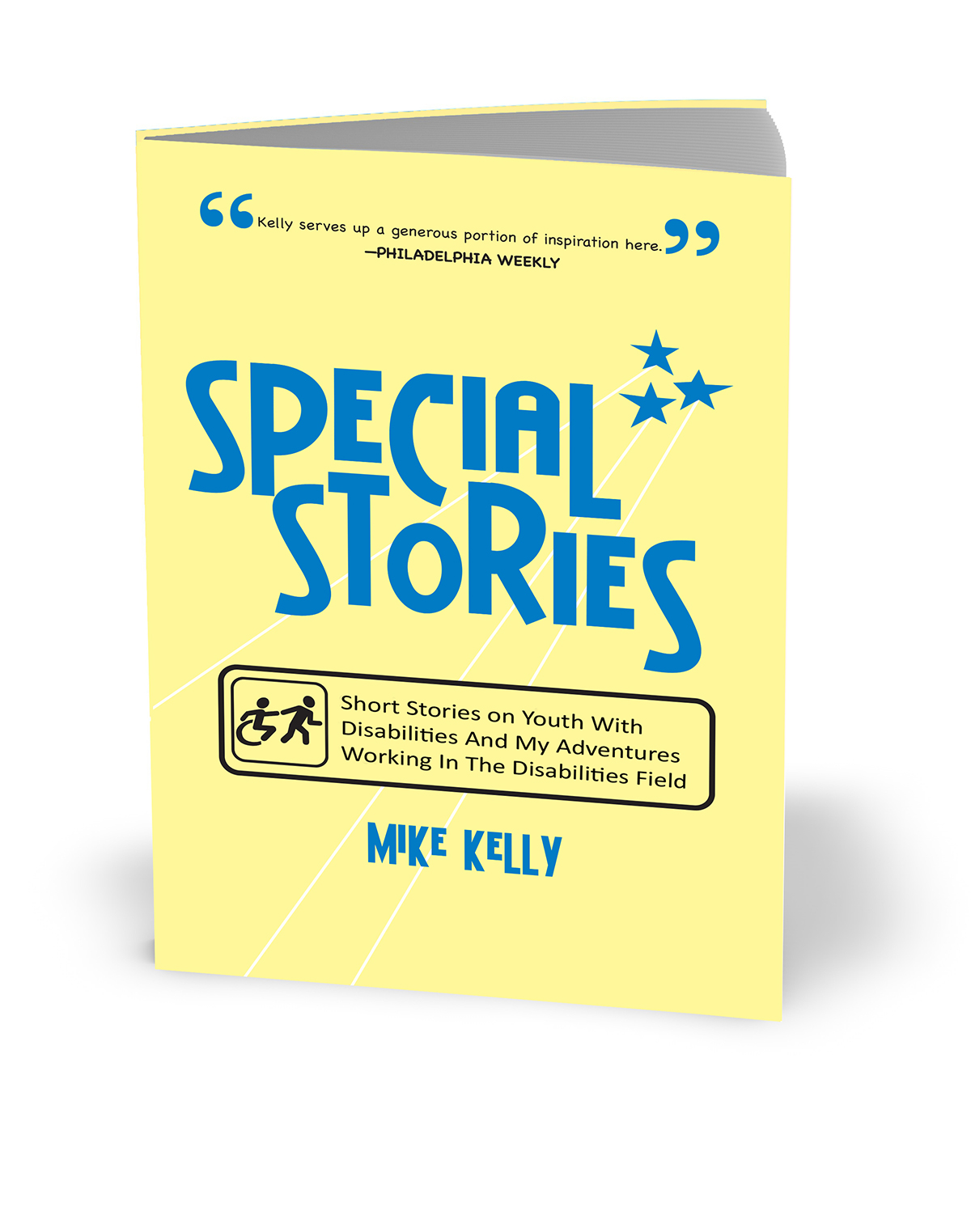Book about disability empowerment- 5 Great Jobs for Teens With Disabilities
Book about disability empowerment- 5 Great Jobs for Teens With Disabilities
For some reason, much of society has unreasonably low expectations of youth with disabilities along with a propensity to stereotype. In fact, there’s a prevailing and widespread belief—sometimes even in the educational establishment—that youth with disabilities pretty much have four job options if they want to work:
1) Bag Groceries
2) Clean Tables
3) Fold Laundry
4) Corral shopping carts
Though this pigeonholing has become an accepted norm in our society, I feel this is ludicrous and, quite frankly, insulting.
Below check out five great outside-the-box jobs for kids with various types of challenges.
—For the teen who uses a power wheelchair, enjoys people, and likes malls. . .
Working for a restaurant within the mall, the teen travels throughout the mall with menus and solicits food orders from various workers within the many stores inside the mall. Teens earn minimum wage, but are paid TIPS on top of that. Once teen takes orders, he/she then turns them in at the restaurant, wait until filled, then delivers orders to customers via a specially-equipped tray affixed to his/her power wheelchair. During the holidays, kids can earn over $20 an hour.
—For the teen on autism spectrum who enjoys playing video games, but not the company of people. . .
Working at a computer gaming design company as a video games tester, testing for bugs and glitches during the development phase before games go to market. This specific entry-level work—while highly needed—is work that design programmers are usually disinterested in doing themselves. Depending upon the company, teens can be paid with money or through experience as a volunteer intern. What teenage male in the 21st Century doesn’t want to play video games? Connecting Johnny or Suzie to a gaming company not only gives them a foot in the door to a future career path, it plants seeds within the teen’s community.
—For the teen with visual impairment that enjoys being around people. . .
Working at a large grocery store creating signs advertising products such as Apples are 3/$2, Pepsi 12-packs are $6, Buy 2 get 1 free, and dozens more to be placed throughout the store. A viewing adapter can either be purchased online or procured from a supporting agency. This device affixes atop the computer monitor and acts as a magnifying glass over the screen and turns a normal size 12 font into a size 72 (or LARGER) font, making teen able to read it.
Working in this environment fosters socialization and teamwork, and has been enjoyed by some of my students over the years.
—For the teen with intellectual challenges who loves little kids. . .
Working as a teacher’s aide within a preschool or similar-type learning center. This, of course, is way outside-the-box thinking. Society-at-large would suggest that because a teen has Down syndrome or other intellectual challenges, that kid’s fate is to bag groceries. I disagree and instead believe you could pretty much make your own fate in life despite who you were and whatever challenges you face.
If you can find a preschool director with an open mind and ability to think outside-the-box, your teen with intellectual challenges can work as a teacher’s assistant, working with children between ages two and four-years-old. They’d be paired with a teacher and would assist that teacher in the classroom with such things as set up and clean up, arts and crafts projects, helping kids get to sleep during daily nap time, and a dozen other areas. A few of my female students with intellectual challenges have enjoyed this job.
—For the teen with intellectual disabilities who enjoys people. . .
Working as a performer either as the Chick-fil-A cow mascot, the Chuck-E-Cheese mascot, or at a theme park that features costumed characters. These jobs help teens express themselves in a creative and fun way, helps teens create a network of friends, earns teens thousands of dollars a year, and paves the way for future acting/ performing gigs.
While much of society places too much emphasis on what someone “can’t do” because of their so-called disability, outside-the-box-thinking focuses on what teens with disabilities can do.
Of course, there’s absolutely NOTHING wrong with bagging groceries, cleaning tables, sweeping floors, or coralling shopping carts—if that’s what someone wants to do. Operative word “wants.” At some point in my own lifetime, I’ve done all of those jobs. They only become wrong when a teen with a disability says they want to do something else, but are guided to do one of the stereotypical jobs—just because they have a disability. That’s when it becomes wrong.
Capisce?
To learn more about helping youth with disabilities find jobs, visit https://www.specialstoriesbook.com and check out the book “Special Stories . . .” by Mike Kelly.

